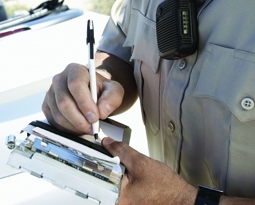Driving While Brown is Still a Problem
Page Media

The United States has had a long and shameful history of discrimination and oppression of racial minorities. Racial profiling by law enforcement, in particular, is an incredibly abusive and degrading practice that erodes public safety and trust between community members and police. So we were not surprised when a recent study conducted by the Pew Research Center found that Latino confidence in local police is lower than among their white counterparts.
As a matter of fact, the study made perfect sense within the context of a report the ACLU of Northern California (ACLU-NC) released last month. Our report detailed and confirmed the Latino community’s experience of being targeted by California Highway Patrol (CHP) officers in Fresno County during 2012. Community members’ concerns included being stopped for little or no reason at all and subsequently having their vehicles impounded after the stop.
The ACLU-NC brought these concerns to the attention of the CHP and asked that it conduct an internal audit of their citation records to determine whether racial profiling was a problem within the department. After an unsatisfactory response, we reviewed their citations ourselves.
We found that Latino drivers received 89% of the citations for driving without a license that resulted in impoundment, even though the Latino population of the county was evenly split with non-Latinos. On the other hand, non-Latinos were almost twice as likely as Latinos to keep their cars following a citation for driving without a license.
So, what was going on here? The data pointed to two officers as being responsible for most of the impoundments involving unlicensed Latino drivers. These twoCHP officers, out of a group of 58, gave out 69% of these impoundment tickets to Latino drivers.
While we found this truly disturbing, CHP’s response was: even if it were the case, did these two officers actually do anything wrong?
Yes! Racial bias amongst police and other law enforcement is always wrong, regardless of how many officers are actually involved. Not only does racial bias violate our highest values of fairness and equality, it also has a very real impact on families and communities.
What was reported to us reflected the level of unfairness that community members in Caruthers experienced at the hands of CHP. In one instance, a young father’s vehicle was impounded for driving too fast one month and then impounded again the next for driving too slowly and “obstructing traffic.” After the second traffic stop, the young man, his wife and new born baby were left on the side of the road in 100 degree heat and with no way to get home.
Incidents like this contribute to an endemic problem that chips away at trust between community members and law enforcement. This lack of trust was quantified by Pew’s recent study: 51% of Latinos have just some or very little confidence that local law enforcement will treat Latinos and whites equally. This disparity is a serious problem.
In terms of the financial burden, car impoundments pose a threat to economic stability, especially for undocumented individuals in the Central Valley who heavily depend on their vehicles for their livelihood or to take their children to school or doctor’s appointments. After all, how many people can afford to pay upwards of $2,000 to recover their vehicle, especially when the threat of another impoundment is ever-present? Not many. In fact, people often opt for abandoning their cars in the impound lot because paying the fees can mean the difference between retrieving your car and being able to afford groceries that month.
And although the situation in Caruthers has seemingly gotten better, there is still much that CHP and other law enforcement agencies can do to ensure communities of color are not targeted because of their ethnicity. For example, agencies can conduct internal audits to protect against and address incidents of racial profiling within its departments, officers can undergo training that emphasizes the fact that it is against California law to stop a driver to determine whether he or she is unlicensed, and agencies can suspend 30-day impounds while California’s new driver’s license law, AB 60: “The Safe and Responsible Driver Act,” comes into effect in January 2015. These are only a few steps that we recommend be undertaken by CHP to curb problematic and racially-biased practices that erode police integrity and effective policing.
Angela Galdamez is a Litigation Assistant at the ACLU of Northern California.
